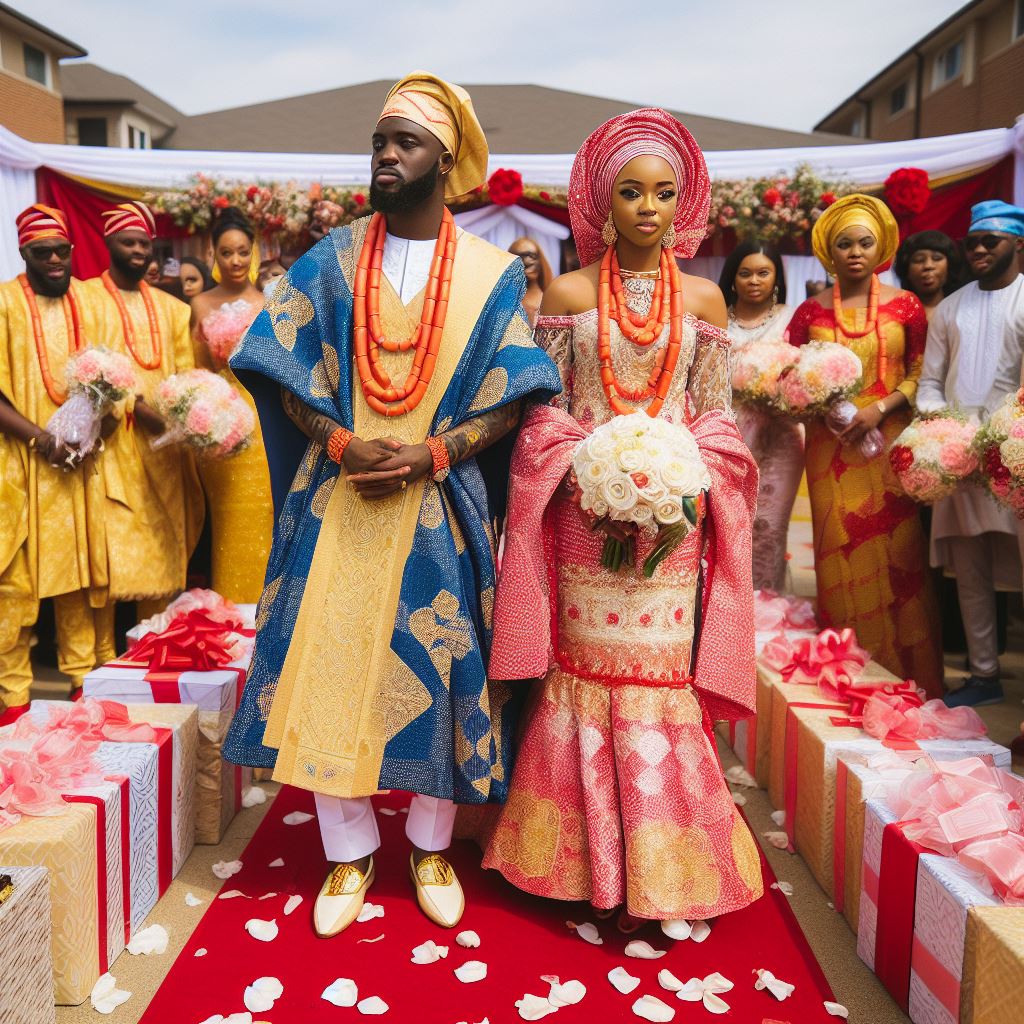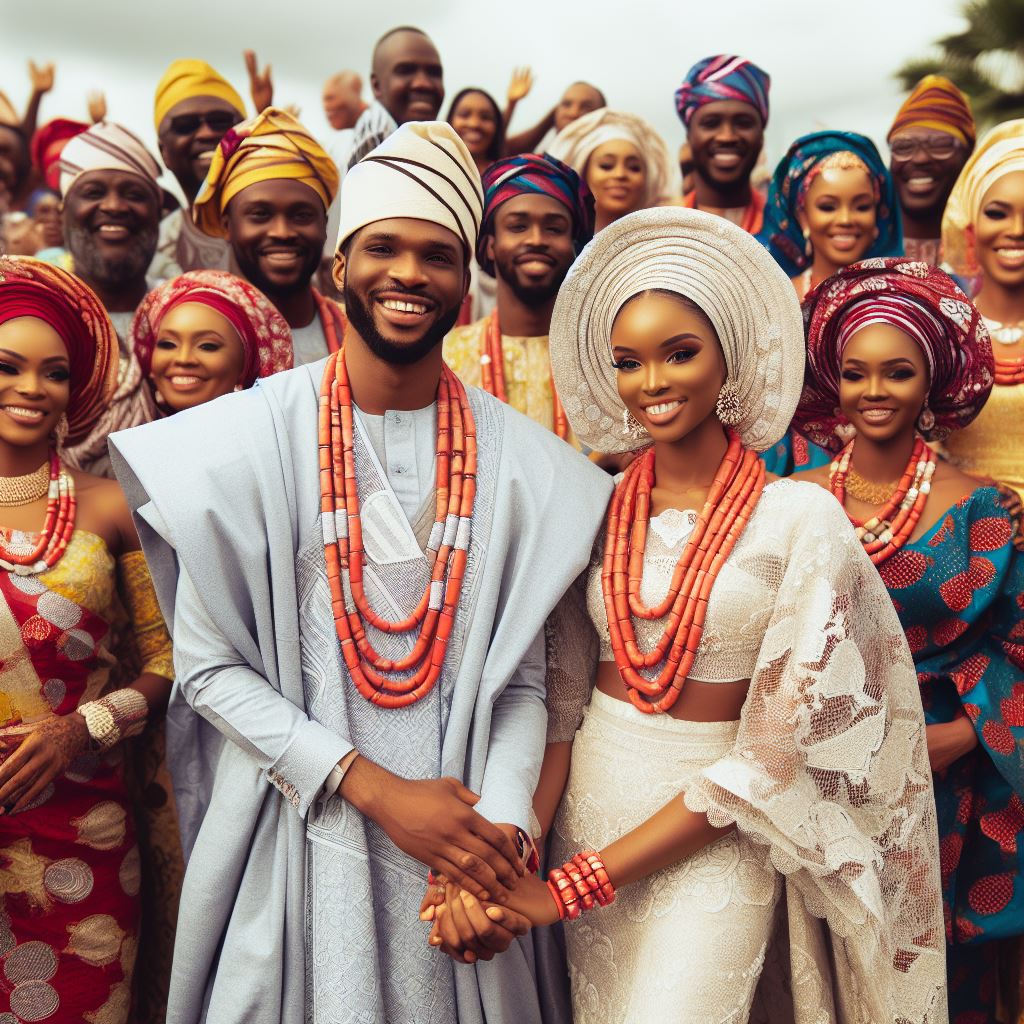Introduction
In a world where love and commitment form the bedrock of society, understanding these themes from diverse cultural lenses becomes essential.
This section delves into the narratives of contemporary Nigerian authors on love and commitment, shedding light on the richness and complexity of these emotions in the Nigerian context.
The significance of exploring the perspectives of Nigerian authors in understanding relationships cannot be overstated.
These writers provide a unique and culturally nuanced view of love and commitment, one that is deeply rooted in the traditions, values, and challenges of Nigerian society.
In a country as diverse as Nigeria, where numerous ethnic groups and languages coexist, literature becomes a bridge that connects people through shared experiences, emotions, and stories.
Nigerian authors, with their vivid storytelling, offer a lens through which readers can explore the intricate tapestry of love and commitment in a nation with a rich history and a promising future.
This section aims to highlight the profound significance of these contemporary Nigerian authors in shaping the narratives on love and commitment in Nigeria’s society.
Their words not only entertain but also educate, challenging conventional norms and enriching our understanding of the human heart.
Overview of Contemporary Nigerian Authors
The Nigerian literary scene has gained significant recognition and popularity over the years.
Nigerian authors have been at the forefront of producing powerful, thought-provoking, and captivating literary works that have resonated with readers around the world.
Brief Introduction to the Nigerian Literary Scene
Nigeria’s literary tradition dates back to pre-colonial times when storytelling played a vital role in preserving the country’s rich cultural heritage.
However, it was in the post-colonial era that Nigerian literature gained international acclaim, with the emergence of renowned authors such as Chinua Achebe, Wole Soyinka, and Chimamanda Ngozi Adichie.
Prominent Contemporary Nigerian Authors and Their Works
Several contemporary Nigerian authors have made significant contributions to the literary scene, showcasing their talent and creativity through their works. Some of the most prominent authors include:
- Chimamanda Ngozi Adichie: Adichie is one of the most celebrated Nigerian authors of our time.
Her works, including “Purple Hibiscus,” “Half of a Yellow Sun,” and “Americanah,” explore themes of love and commitment in the context of Nigerian society. - Ayobami Adebayo: Adebayo’s debut novel, “Stay with Me,” delves into the complexities of love and loyalty. The story unfolds against a backdrop of societal and cultural expectations.
- Helon Habila: Habila is known for his novel “Measuring Time,” which examines the enduring power of love and commitment in the face of political turmoil and personal struggles.
- Sefi Atta: Atta’s novel “Everything Good Will Come” follows the life of a young Nigerian woman, exploring her experiences with love, friendship, and personal growth.
- Abubakar Adam Ibrahim: Ibrahim’s novel “Season of Crimson Blossoms” delves into the taboo theme of older women engaging in relationships and the consequences of their choices.
Focus on Authors Who Have Written Extensively on Love and Commitment
Among the aforementioned authors, Chimamanda Ngozi Adichie stands out for her ability to capture the intricacies of love and commitment in contemporary Nigeria.
Her novels resonate with readers due to their relatable characters and engaging storytelling.
In “Purple Hibiscus,” Adichie explores the theme of love within a restrictive and abusive household. The protagonist, Kambili, navigates her feelings for a young priest while dealing with her oppressive father’s control.
“Half of a Yellow Sun,” set against the backdrop of the Nigerian-Biafran war, presents a tale of love and commitment amidst political upheaval.
The characters’ relationships are tested as they strive to survive and find meaning in a time of chaos.
“Americanah,” Adichie’s critically acclaimed novel, delves into the complexities of love and commitment in the context of immigration and racial identity.
It follows the story of Ifemelu and Obinze, who navigate different paths, longing for each other while facing the challenges of being immigrants.
Through their diverse works, these contemporary Nigerian authors shed light on the intricacies, challenges, and beauty of love and commitment within the Nigerian society.
Their narratives offer readers a glimpse into the complexities of human relationships and the powerful emotions that drive our actions.
The Nigerian literary scene boasts a plethora of talented contemporary authors who have made a significant impact on the global literary landscape.
Their exploration of themes like love and commitment adds depth and richness to their works, making them compelling and relevant to readers worldwide.
Read: Harmonizing Love and Faith: Nigerian Couple’s Anniversary Prayer Rituals
Exploring Love in Nigerian Literature
Analysis of different portrayals of love in contemporary Nigerian literature
The portrayal of love in contemporary Nigerian literature is rich and diverse, encompassing various themes such as unrequited love, forbidden love, and enduring love.
Nigerian authors skillfully capture the complexities and nuances of relationships, offering readers a deep insight into the human experience.
Analysis of different portrayals of love in contemporary Nigerian literature
Unrequited Love
One prevalent theme in Nigerian literature is unrequited love, where characters experience intense emotions for someone who does not feel the same way.
This portrayal highlights the pain and longing that accompany unreciprocated affection.
An example of unrequited love can be seen in Chimamanda Ngozi Adichie’s novel “Americanah,”.
Where Ifemelu falls deeply in love with her childhood friend Obinze, only to discover that he has moved on and married someone else.
Forbidden Love
Nigerian literature also explores the complexities of forbidden love, involving relationships that go against societal or cultural norms.
These stories shed light on the challenges faced by individuals who dare to defy conventions in pursuit of their feelings.
In Buchi Emecheta’s novel “The Joys of Motherhood,” Nnu Ego, the protagonist, experiences forbidden love with a man outside her clan.
Their relationship is marked by social disapproval and sacrifices, creating a narrative of love against all odds.
Enduring Love
Enduring love is another theme depicted in Nigerian literature, showcasing the resilience and strength of relationships that withstand the test of time and adversity.
These narratives emphasize the power of love to endure and transform individuals.
“Half of a Yellow Sun” by Chimamanda Ngozi Adichie beautifully portrays enduring love through the characters of Ugwu and Olanna.
Despite the challenges brought by the Nigerian civil war, their love persists, providing solace and hope amid chaos.
Examples from popular novels by Nigerian authors to illustrate these themes
Unrequited Love: “Americanah” by Chimamanda Ngozi Adichie
Adichie explores unrequited love through Ifemelu’s heartache as she grapples with her unreturned feelings for Obinze, showcasing the pain of unrequited affection.
Forbidden Love: “The Joys of Motherhood” by Buchi Emecheta
Emecheta’s novel delves into the realities of forbidden love as Nnu Ego’s relationship defies societal norms, challenging readers to question the boundaries imposed on love.
Enduring Love: “Half of a Yellow Sun” by Chimamanda Ngozi Adichie
In this poignant story, Adichie illustrates the enduring love between Ugwu and Olanna, demonstrating love’s ability to withstand even the harshest circumstances.
Contemporary Nigerian literature provides a rich tapestry of love and commitment, presenting readers with a plethora of narratives that explore the intricacies of human relationships.
The themes of unrequited love, forbidden love, and enduring love offer valuable insights into the universal emotions that transcend cultural boundaries.
Through the works of talented Nigerian authors, readers are invited to reflect on their own experiences of love and commitment, fostering empathy and understanding.
These literary gems serve as a testament to the power of storytelling in capturing the beauty and complexity of human connections.
Read: How Religion Impacts Marriage Counseling in Nigeria
Perspectives on Commitment
Examination of the concept of commitment in Nigerian literature
- Nigerian literature presents a diverse range of perspectives on the concept of commitment.
- Authors explore commitment in various forms, such as romantic relationships, family ties, and societal obligations.
- Through their writings, Nigerian authors delve into the complexities and challenges of making and sustaining commitments.
- They provide insight into the emotional, psychological, and cultural aspects of commitment.
Different interpretations and representations of commitment in romantic relationships
- Nigerian literature presents a tapestry of perspectives on commitment in romantic relationships.
- Some authors portray commitment as a selfless act of devotion and sacrifice.
- Others highlight the struggles and conflicts individuals face in maintaining commitment.
- These divergent interpretations offer readers a nuanced understanding of love and commitment.
How these depictions reflect the cultural and societal norms of Nigeria
- Nigerian authors mirror the cultural and societal norms of commitment through their literary portrayals.
- They explore traditional gender roles and expectations within committed relationships.
- Cultural values, such as loyalty to family and community, often influence characters’ commitments.
- Nigerian literature serves as a mirror, reflecting the complexities of commitment within the Nigerian context.
Nigerian literature provides a rich exploration of commitment in various forms, particularly in romantic relationships.
Authors reflect cultural and societal norms, offering readers a deeper understanding of the complexities of commitment in Nigeria.
Through their writings, they depict commitment as an integral part of Nigerian society, highlighting both its joys and challenges.
Read: Cost of Marriage Counseling in Nigeria: Budgeting for Harmony

Fostering Change and Challenging Traditions
Contemporary Nigerian authors have played a significant role in challenging the traditional views on love and commitment prevalent in society.
Through their literary works, they have focused on breaking stereotypes and promoting progressive ideas.
1. How contemporary Nigerian authors are challenging traditional views on love and commitment
- Chimamanda Ngozi Adichie is one such author who challenges traditional gender roles in relationships.
- In her book, “Half of a Yellow Sun,” Adichie portrays strong female characters who defy societal expectations.
- These characters prioritize their own ambitions and desires, challenging the notion of sacrificing oneself for love.
- Adichie’s work highlights the importance of individuality and equality within relationships.
- Another author, Ayobami Adebayo, explores the complexities of love and commitment in her novel, “Stay with Me.”
- She challenges the traditional belief that a woman’s worth is solely tied to motherhood.
- Through her characters, Adebayo questions societal expectations and the pressure to conform to traditional roles.
- These contemporary authors present alternative narratives that encourage readers to question and challenge traditional views.
2. Breaking stereotypes and promoting progressive ideas
- Contemporary Nigerian authors have taken it upon themselves to break stereotypes surrounding love and commitment.
- They reject the notion that love is solely about romantic relationships.
- Authors like Sefi Atta explore the love between friends and family, emphasizing its equal importance.
- These authors believe in promoting progressive ideas that cater to the changing dynamics of Nigerian society.
- They challenge the traditional idea that marriage is the ultimate goal and instead emphasize personal growth and independence.
- By portraying diverse characters and relationships, these authors dismantle societal expectations.
- They encourage readers to embrace unconventional forms of love and commitment.
- Through their writings, these authors promote inclusivity and acceptance.
3. The role of literature in shaping social attitudes and fostering change
- Literature has always played a crucial role in shaping social attitudes and fostering change.
- Contemporary Nigerian authors have harnessed the power of storytelling to challenge traditional views.
- By presenting alternative narratives, they initiate conversations and create space for dialogue.
- Their works serve as a catalyst for social change and encourage readers to question societal norms.
- Through literature, authors can influence and shape public opinion on love and commitment.
- These authors act as agents of change, using their platforms to challenge the status quo.
- They inspire readers to reevaluate their own beliefs and challenge ingrained traditions.
- Through their writings, contemporary Nigerian authors contribute to the progressive transformation of society.
Contemporary Nigerian authors are actively challenging traditional views on love and commitment.
Through their thought-provoking stories, they break stereotypes, promote progressive ideas, and foster change.
Their literary works serve as powerful tools in shaping social attitudes and inspiring readers to question societal norms. These authors are pivotal in shaping a more inclusive and accepting society.
Read: Understanding the Dynamics of Marriage Life in Nigeria
Impact on Nigerian Society
Analysis of the influence of Nigerian authors on love and commitment in society
- Nigerian authors play a significant role in shaping societal perspectives on love and commitment.
- Their works explore the complexities and nuances of relationships, prompting readers to reflect on their own experiences.
- Through their narratives, Nigerian authors challenge traditional beliefs and stereotypes surrounding love and commitment.
- They encourage openness, communication, and mutual understanding between partners.
- By addressing societal issues like gender inequality and cultural expectations, authors foster a more inclusive understanding of love.
How literature shapes individual perspectives and societal norms
- Literature serves as a mirror, reflecting the realities and experiences of individuals in society.
- Nigerian authors provide diverse and relatable characters that readers can identify with, creating empathy and understanding.
- Through literature, individuals gain insights into different cultures, traditions, and perspectives on love and commitment.
- These varied viewpoints allow individuals to question and challenge their own preconceived notions.
- As readers engage with fictional stories, they become more aware of the impact of love and commitment on their lives.
Examples of how Nigerian authors have contributed to evolving ideas on love and commitment:
- Chimamanda Ngozi Adichie’s novel “Half of a Yellow Sun” explores love amidst war, emphasizing the resilience and sacrifice of relationships.
- Buchi Emecheta’s novel “The Joys of Motherhood” challenges traditional gender roles and expectations within Nigerian society.
- Helon Habila’s “Waiting for an Angel” portrays the struggles of love and commitment in a politically turbulent environment.
- Through their works, these authors have sparked conversations and brought attention to important issues in Nigerian society.
- They inspire readers to question societal norms, encouraging a more progressive and inclusive approach to love and commitment.
Nigerian authors have had a profound impact on love and commitment in Nigerian society.
Through their analysis and exploration of relationships, they have challenged existing norms, promoted understanding, and fostered progressive ideas.
By shaping individual perspectives, literature has the power to influence societal change, ultimately contributing to a more inclusive and egalitarian society.
As Nigerian authors continue to write about love and commitment, their works will undoubtedly shape the future of relationships in Nigeria.
Conclusion
In this section, we’ve explored the profound impact of contemporary Nigerian authors on the themes of love and commitment.
These authors offer unique perspectives, enriching our understanding of relationships in Nigerian society.
We’ve underscored the importance of their narratives, which reflect the complex interplay of culture, tradition, and modernity.
By delving into the works of authors like Chimamanda Ngozi Adichie, Chigozie Obioma, and many others, readers can gain a deeper insight into the intricate fabric of love and commitment in Nigeria.
The stories penned by these authors challenge stereotypes and broaden our horizons, allowing us to connect with the experiences and emotions of people in this diverse nation.
As we conclude, we encourage you to explore their works.
Through their literary contributions, they continue to shape the narratives that help us navigate the complexities of love and commitment in contemporary Nigerian society.




